Antioxidants are powerful natural compounds with many antiaging and health-boosting properties. Quercetin is a specific antioxidant with some incredible, proven health benefits.
Quercetin is likely the most well-researched antioxidant to date. Studies have revealed that it can enhance immunity and heart health, lower inflammation, and even fight cancer.
Quercetin is also one of the most abundant antioxidants found in the diet. By eating a range of specific fruits, vegetables, and herbs, you can easily load up on this beneficial plant compound.
Here’s more about what exactly quercetin is, its important health benefits, and how to consume more of it.
What Is Quercetin?
Quercetin is a specific type of flavonoid antioxidant. Flavonoids are a larger group of antioxidants with anti-inflammatory, anticancer, and neuroprotective properties. Consuming them regularly can lower your risk of several major chronic diseases.
Besides being categorized as an antioxidant, quercetin is also a plant pigment. It’s found most abundantly in deeply colored plant foods.
Because it’s so widely found in plant sources, quercetin has been the subject of many research studies. The findings are impressive and indicate that it has anti-allergy potential as well as a powerful ability to combat damage in your body from free radicals and oxidative stress.
Protecting You from Free Radicals
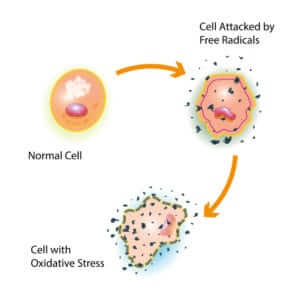
The terms “free radicals” and “oxidative stress” get thrown around a lot in relation to antioxidants. It’s important to take a closer look at what they really mean and how they can affect you.
Free radicals are created in your body in two main ways: normal metabolic processes and exposure to external things like UV radiation, pollution, and various chemicals.
Despite the fact that free radicals are most often referred to negatively, they are a byproduct of normal bodily processes. Even something good for you, like exercise, produces free radicals. The main problem comes from an accumulation of these molecules in your body.
A defining characteristic of free radicals is that they contain an unpaired electron. This makes them highly reactive. They either accept or donate an electron and can attack other molecules. The result is damage to cells, DNA, proteins, lipids, etc.
This behavior makes free radicals what’s known as “oxidants” or “reductants.” The damage they cause over time has come to be known as “oxidative stress” and naturally accumulates as you age.
Environmental conditions, chemicals, and exposure to radiation can all accelerate the production of free radicals and increase oxidative stress. Researchers now believe that oxidative stress is directly connected to all inflammatory diseases and other major diseases like cancer and neurodegenerative disorders.
The Role of Antioxidants
So what do antioxidants like quercetin have to do with free radicals and oxidative stress?
Antioxidants are stable molecules that can donate an electron to a free radical. This effectively neutralizes free radicals and prevents them from attacking other molecules in your body. Of course, this also reduces oxidative stress as well.
Since you can’t prevent free radicals from forming, consuming an abundance of antioxidants is key to good health.
While is a general benefit of all antioxidants, quercetin has specifically shown strong protective action against free radicals and damage from oxidative stress.
Keep in mind this ability to neutralize free radical damage as you read about the more specific benefits of quercetin. It’s directly connected to almost all of them.
Incredible Health Benefits of Quercetin
Reduces Chronic Inflammation

Calming chronic inflammation in your body is essential to staying healthy as you age.
Acute inflammation is a normal and necessary response by your body to things like infection and injury. Chronic inflammation, on the other hand, is detrimental to health.
There can be several triggers for constant, low-level inflammation, but oxidative stress is one of the most common. It’s happening inside all of us as we age, and if it’s not taken care of, it will only increase inflammation over time.
Not only does chronic inflammation put a constant strain on your health, research links it to many of the most common (and deadly) age-related diseases. This includes heart disease, cancer, many autoimmune disorders, and cognitive decline.
Studies so far demonstrate that quercetin can reduce both acute and chronic inflammation. One animal study also indicated that it might have anti-arthritis properties as well.
The biggest benefit of using antioxidants like quercetin for inflammation is that they have far more than just a superficial effect. They get to one of the root causes of an inflamed body: oxidative stress.
This means a long-lasting reduction in overall inflammation levels- not just a short-term coverup of symptoms.
May Help Fight Pain (Especially from Arthritis)
By lowering inflammation in your body, quercetin also has benefits for fighting pain.
One research study from 2017 evaluated the effects of quercetin on symptoms of arthritis. Fifty women suffering from rheumatoid arthritis participated. Each was given either quercetin or a placebo for eight weeks.
The results showed that morning pain, after-activity pain, and early morning pain all decreased in those taking the antioxidant. Besides this, the number of patients with active disease also dropped significantly in the quercetin group.
More studies show that quercetin has the ability to reduce other types of inflammatory pain. A small trial also reported that it successfully reduced pain from interstitial cystitis (a chronic bladder condition).
The number of human research studies completed remains small, so the results are still inconclusive. However, there’s good potential for antioxidants to become part of a pain management plan.
Combats Allergy Symptoms

If you suffer from allergies, you know how frustrating it is to deal with the sneezing, a runny nose, itchy eyes, etc. Severe allergies, especially to certain foods or bee stings, can even be deadly.
Researchers still don’t know for sure why allergic reactions happen, but they do know that they are caused by your immune system overreacting to a specific substance. When this occurs, your immune system releases chemicals known as histamines.
The main job of histamines is to get the allergens out of your body. They do this by causing you to sneeze, itch, rub your eyes, and so on.
Of course, this is the reason why anti-histamines are commonly prescribed to treat allergies.
Studies show that quercetin may be able to help relieve both food and seasonal allergies, in part by inhibiting the release of histamine. Its anti-inflammatory properties have further benefits for calming symptoms of an allergic reaction.
One animal study even showed that supplementing with quercetin suppressed anaphylactic reaction to peanuts. Peanut allergies are one of the most likely to be fatal, and this could be a breakthrough into a new treatment.
Once again, human research on quercetin and allergies has yet to be conducted, but you can see that results so far are very positive.
Protective of Heart Health
Anything that lowers chronic inflammation is going to benefit your heart. Heart disease is also one of the chronic conditions connected to oxidative stress, something we know quercetin combats.
However, quercetin also has some more specific benefits for heart health.
Several studies have documented that quercetin can cause a significant drop in both systolic and diastolic blood pressure. High blood pressure is one of the biggest factors than can raise your risk of developing heart problems.
A 2016 review also connects quercetin to a reduced risk for type 2 diabetes and obesity. Both of these are connected to a greater risk for heart disease.
So far, these benefits for blood pressure and overall heart health are confirmed in human trials. A diet rich in antioxidants is proving to be an important factor in protecting the healthy function of your heart!
Anticancer Potential
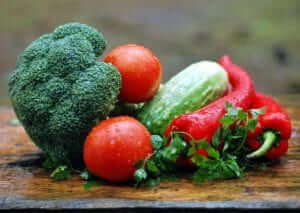
Antioxidants have some of the best cancer-fighting potential out of any natural compounds, and quercetin is no exception.
To start with, chronic inflammation and oxidative stress are both linked to cancer formation. This is just one of the reasons antioxidants are so important for stopping serious diseases before they happen. In fact, research shows that a diet rich in flavonoids can help prevent cancer.
Lab studies also show that quercetin may be effective against existing cancer cells.
So far, this antioxidant has been able to suppress and induce cell death in prostate, liver, lung, ovarian, breast, colon, bladder, blood, lymph, and adrenal cancer cells.
There is much more research needed to determine if quercetin could be an effective treatment for cancer, but you can still benefit from its free-radical fighting power right now and likely reduce your cancer risk at the same time.
Boosts Skin Health (And May Slow Signs of Aging)
Chronic inflammation and oxidative stress don’t just have an impact on the inside of your body. They are also connected to the health of your skin and what we would call “signs of aging.”
Damage from UV radiation that causes age spots and the like is probably the most well-known example of the effects oxidative stress can have on your skin. Dermatitis, psoriasis, and acne are all prominent examples of skin disorders connected to inflammation.
Applying antioxidants topically and/or consuming them are both shown by research to improve skin health and protect against further damage.
Quercetin has so far only been tested in vitro, but it’s already demonstrated an ability to decrease both dermatitis and photosensitivity (heightened sensitivity to sunlight and UV radiation).
Other research discovered that it has a restorative effect on human dermal fibroblasts (HDFs). HDFs are the main cells that make up the connective tissue of your skin. They are crucial for wound healing and secrete both collagen and elastin, two substances that are needed to keep skin from aging.
By restoring HDFs, quercetin and other antioxidants have many positive effects on your skin and can keep it looking youthful!
May Help Prevent Neurological Diseases

Protecting the health of your brain has never been more important. Diseases like Alzheimer’s and dementia have unfortunately become common, and your risk for developing one of these conditions goes up as you get older.
Quercetin has demonstrated some specific health benefits for preventing degenerative brain disorders.
One of the ways it does this is by counteracting oxidative stress, which yet again plays a large role in the development of age-related cognitive diseases. The exact way it works is still unknown, but studies have determined that it has strong neuroprotective properties.
In animal studies, quercetin has been shown to reverse several markers of Alzheimer’s as well as improve brain function during the early-middle stage of Alzheimer’s.
Interestingly, the antioxidant showed no effect during the middle-late stage of Alzheimer’s. This suggests that it has more of a protective and preventative role for brain health rather than acting as a “treatment.”
If you’ve ever heard about research linking coffee to a lower risk of Parkinson’s and Alzheimer’s diseases, newer studies have found that’s it’s actually the quercetin found in the coffee- not the caffeine- that is responsible for this effect.
Yet another reason to fill your diet with more antioxidants!
How to Get More Quercetin in Your Diet
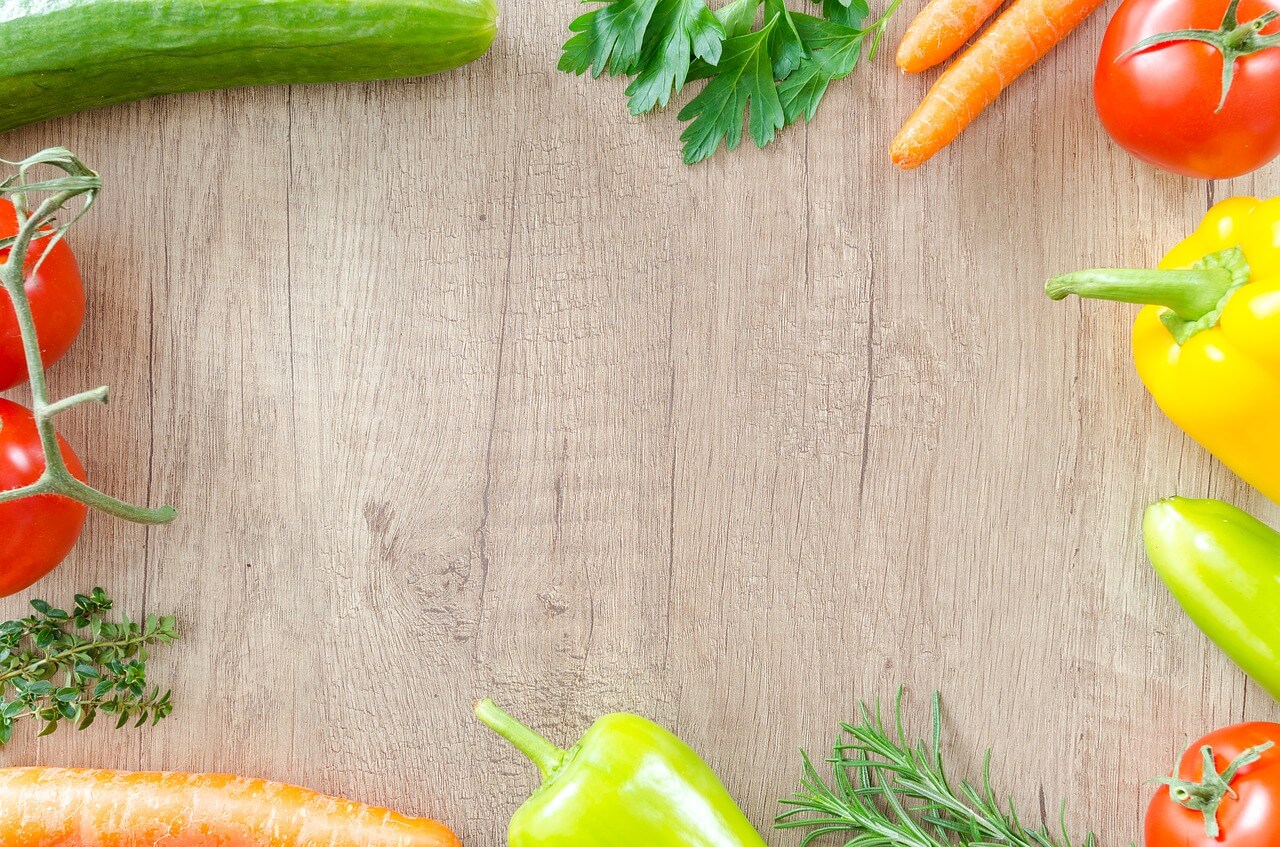
Now that you know more about the incredible benefits of quercetin, how can you consume more of it?
As a general rule, you’ll find it most abundantly in green-, red-, and purple-colored plant foods. Just keep in mind that the amount of it in food will vary depending on growing practices, freshness of produce, etc.
Here are some of the top sources by category.
Fruits:
- Apples (particularly red ones)
- Cherries
- All berries (blueberries, raspberries, etc.)
- Grapes (particularly red ones)
- Citrus fruits
Vegetables:
- Peppers
- Tomatoes
- Onions
- Leafy greens
- Broccoli and other cruciferous vegetables
- Asparagus
- Red lettuce
Herbs and other foods:
- Sage
- Gingko biloba
- St. John’s wort
- Whole grains
- Cocoa powder
- Green and black tea
- Capers
What About Quercetin Supplements?
Quercetin is also now available as a supplement. You can buy ones that contain only quercetin, but it doesn’t absorb well into your body on its own. Because of this, it’s often paired with vitamin C or bromelain (a digestive enzyme) in supplements to improve bioavailability and absorption.
There isn’t any research yet to determine how effective the supplements are compared with consuming quercetin from food. However, the typical dose is 500-1000 mg per day.
If you eat a diet packed with plant foods, it’s unlikely you’ll need to try a supplement. It’s also worth considering the fact that fruits, vegetables, and other plant foods contain many other compounds that may help your body absorb quercetin better- including vitamin C.
Are There Any Precautions?
If you want to get more quercetin in your diet, there are no precautions for eating more plant food! In fact, you’ll probably feel healthier for it.
So far, there are no reported side effects for a normal dose of quercetin supplement. Taking more than 1000 mg a day can cause mild symptoms like a headache or a tingling sensation.
There is also a possibility that these supplements may interact with some medications, especially antibiotics, blood thinners, and blood pressure medication.
Boost Your Health with Quercetin
It’s no secret that antioxidants are great for your health and a main component of many anti-aging foods. Research is now revealing more about the heath benefits of specific antioxidants, like quercetin, and what makes them so powerful.
By adding more quercetin-rich foods to you diet, you can enjoy better brain, skin, and heart health and give your body some relief from chronic inflammation- exactly what you need to feel better and age well.
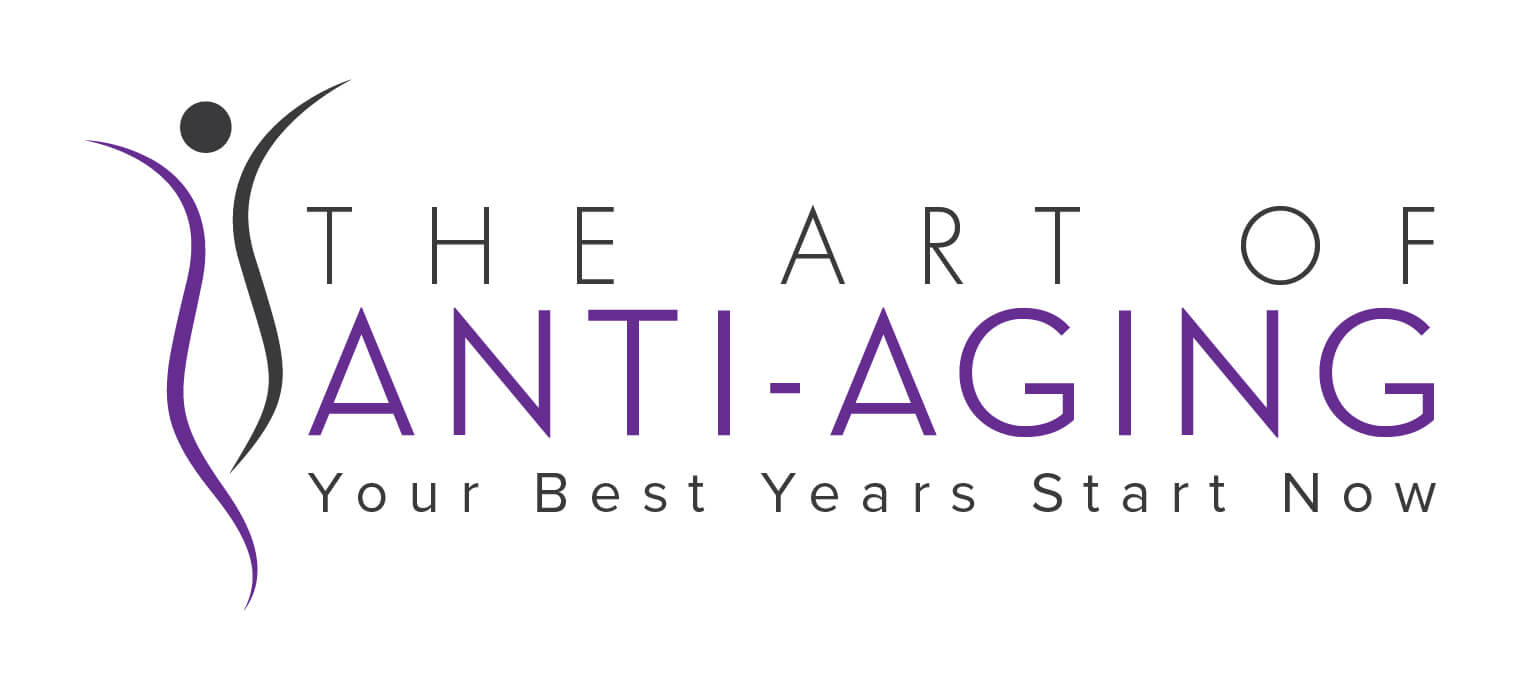
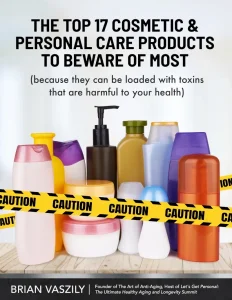
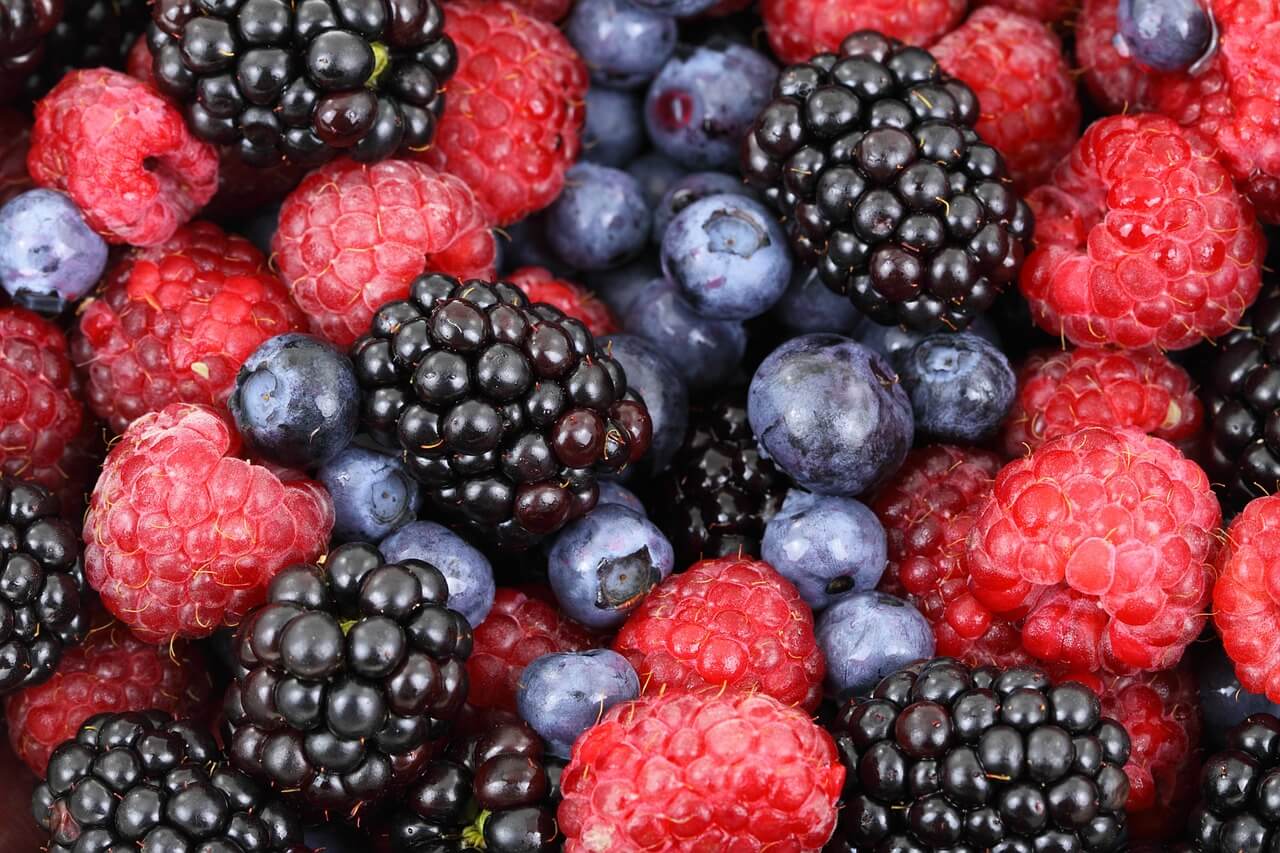
This was an educational article . How does one get by the seeds in the raspberry ur blackberry? Thanks.
Blend them in a blender and then strain them to remove seeds.
Perhaps try it in liquid form (as a juice). If you want to make your own, you could put them in a blender that would either grind them up or a juicer that separates them out.
Super good information. Now I know I am doing good with the fruits and veggies I eat. when I had a bad fall with pain in muscles and ligaments, a chiropractor told me that curcumin was the bast for healing my situation and worked better if taken with Vit B.
Thank you. I particularly love the list of foods that contain quercetin.
Thank you, Good information. Always better to receive these nutrients from natural foods. Good to know if traveling WHAT to take for extra coverage!
Thanks for the article on Quercetin, explained very well. Now I know more about why all the veg and fruit I love are helping me to stay healthy through my aging process.
Your articles are brilliant but I find that with so many coming regularly, there is an overload of information when one is older. I hope all the younger generations take heed; it pays dividends in later life.
Always great information!
Very interesting, I think I’m on the right track as I eat mostly plant base legumes and such.
You just made a lot of us much smarter about quercetin.
As always, spot on beautiful article. Thank you Brien.
Thank you Brien, I love being educated about nutrician.
Great valuable article, thank you! Dr. Murray also took it for Corona virus and swore by quercetin which he said took care of the virus in very short time!! since then I’m taking supplemental quercetin as well as eating more berries! Thanks again
So very interesting and helpful ! These do make a difference to your immunity and so easy to include I n your diet
Great information! Love all the helpful articles that help us stay healthy and age more gracefully.
Interesting and helpful article.
Thank you Brian for such a comprehensive article about the wide benefits of Quercetin.
Learn sooo much from you. Thanks
Personally I must not fruits as they contain a lot of sugar and my body is very sensible to blood sugar. It means that the sugar value easily goes up as soon as tha blood surar is high. I have Quercetin in tablets but I did not know its many benefits for better health. Thanks to you and to Brien as well.
Georgios Vichos
I have a bottle of this that I took when I had COViD. Im going to make it part of my regular supplement regimen after reading this extremely powerful article! Thanks for the education!!!!
Thank you, loved the report. Always known a healthy diet is the best we can do for our whole body health. 63rd birthday this week, hoping for many, many more- got to get the most out of that flipping pension!
Thanks Brian for this information, I knew about this but did not know it has such marvelous benefits, thanks for looking out for us, happy Thanksgiving,
I take quercetin and stinging nettle whenever I get an allergy attack. I consume a diet high in quercetin regularly but I have to supplement in fairly high dosages to get relief from nasal allergies. The stinging nettle stops the eye itch and the quercetin helps with the runny nose. I have never had a negative reaction to taking these even in doses of 3 or 4 grams a day. It is so much better than any other thing you can take for allergic reactions.
Thank you! A few months ago I began to use 1000 mg quercetin a day to protect myself against covid (together with vitamin d2, vitamin c, zinc, selenium). There was a great and unaspected side effect: I no longer need tamsulosine. Quercetin is a wonderful natural drug against prostatitis.
Foarte interesant articol.
Am folosit suplimentul Quercetin in faza de boala Covid 19 si post; la fel fructe si legume.
Sper sa consume Quercetin cat mai multe persoane.
Great information thank you. My wife makes it by “simmering” (not hard boiling) the rinds of 3 grapefruit and 3 lemon peels in water that sits three inches above the rinds for two hours. Don’t lift the cover or the batch will lose its potency. Lift the cover when the batch is completely cooled and then bottle it. Take 2 tablespoons per day:-)
Actually it is Quinine that my wife makes:-)
Hoping this protocol will help with my Grovers disease and Cold Urticaria. No cure for these but I believe they may caused or aggravated by histimine. Thanks for the info.
Very informative, Thank you
A very informative article about quercetin. The list of veggies and fruit that contain quercetin is very helpful to add to my grocery list. I wouldn’t take the supplement unless it is encapsulated to get pass the stomach acid.
Thank you so much for the information
Thank you, Brian, for the educational article on quercetin. I wasn’t aware of all of the benefits that I can receive from taking it. I love all of the fruits and veggies that contain quercetin, so I am probably getting more than I thought I was.
A very informative article. Thank you for the valuable information.
Happy Birthday! And thank you for sending this informative article on Quercetin,
Thank you for the in depth article! I am also interested in Quercetin as a source of stem cell growth internally to help the eyes. I appreciate the supplement quantity info.
Thank you so much Sir, for such an informative article. It made me feel so proud of myself
because I do eat mostly fruits. vegetable sand a few ground provisions. You are actually
teaching us what the Bible says. Let your food be thy medicine. Grateful thanks.
I am grateful for your taking the trouble to inform us of such interesting and valuable information.
Thank yo for this informative article. I especiallly like the listing of natural sourcesfor quercetin. How much would 1 have to eat of these fruits, vegs, etc. to get a sufficient amount of quercetin?
Always appreciate your articles and learning more about healthy aging.
Thank you Brian, and Happy Birthday! I knew Quercetin was good but not that good! I believe I just ordered a fulvic mineral supplement that also has Quercetin in it. That you for the enlightening!
How is quercetin best absorbed? Since it’s an antioxidant, I heard you should take with a little bit of fat and maybe vit C? Also, if you work out with cardio…not to take right after, but on days off.